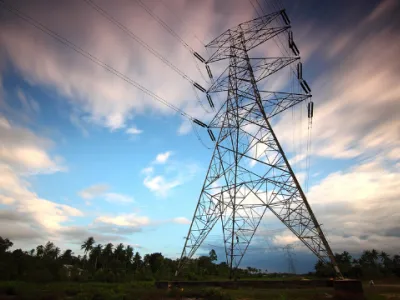CUB recommends that the Commission deny Minnesota Power’s request to delay its Integrated Resource Plan filing

Published July 20, 2020
Minnesota law requires public utilities to periodically file an Integrated Resource Plan (“IRP”) with the Public Utilities Commission (the “Commission”). An IRP is a roadmap that public utilities use to analyze and model various strategies for meeting electricity demand over the next 15 year time horizon. Ideally, the IRP planning process allows utilities to publicly identify, with input and comments from interested stakeholders, the strategy that allows the utility to meet those demands in the most efficient and cost-effective way possible.
In order for resource planning to be most effective, IRPs must be filed on a regular basis and continuously adjusted to meet shifting consumer needs and the constantly evolving economic, environmental, technological, and regulatory factors that influence energy use, production, and transmission. Minnesota rules generally require utilities to file updated IRPs every two years. However, utilities often request that the Commission grant them additional time between filing periods. Though CUB acknowledges and respects the Commission’s authority in granting extensions when appropriate, we believe that Minnesota Power (the “Company” or “MP”) went too far by recently requesting that the Commission extend its IRP filing deadline for the third time.
MP’s last IRP was filed in 2015, and was approved with modifications on July 18, 2016. Minnesota law would have typically required MP to file its next IRP in 2018; however, that deadline was extended on two prior occasions. If the Company’s third extension request is granted, more than five and a half years will have passed between MP’s IRP filings.
In support of the extension request, the Company cites economic uncertainty the COVID-19 Pandemic creates for MP’s large customers, the implementation of a new capacity expansion modeling tool, EnCompass, and the inability to engage in in-person stakeholder meetings regarding the future of the Company’s Boswell Energy Center in Cohasset, MN. The Company also notes that Governor Walz’s “stay at home” orders have made it more difficult for the Company’s staff to address myriad issues and tasks.
Though we certainly appreciate the challenges all businesses face during these unprecedented times, CUB respectfully disagrees that the burdens cited by the Company justify another extension. We also note in our filed comments that the Company has not demonstrated (or even argued) that an additional extension will not “adversely affect the public interest.” By failing to make that argument, the Company has not met its burden for requesting a variance from a regulatory-imposed deadline.
We believe that allowing the Company, or any public utility, to go five and a half years between IRP filings does adversely affect the public interest. A lot has changed in the past five years. A key study conducted by a respected research firm, Lazard, shows the levelized cost of energy generated by wind declined by between 12 and 32 percent between 2015 and 2019. The cost of utility scale solar energy has also declined by more than 30 percent over the same period. Both of these renewable energy options are now considerably less expensive than coal and typically less expensive than natural gas generation. Production and use of wind and solar energy have increased significantly -- so much that Lazard no longer considers wind and solar “alternative energy” resources; rather they are now considered on par with “conventional” generation sources like coal and natural gas. In addition, consumer demand is changing, driven by increasing energy efficiency, distributed generation, electric vehicles, and changing consumer demands. These changes need to be accounted for in the Company’s ongoing resource planning process.
In summary, CUB acknowledges the difficulty and uncertainty surrounding the COVID-10 Pandemic. However, we view these uncertainties -- along with the significant other developments in the industry summarized above -- as further evidence of why careful and timely planning is needed now, and not as justification for its further delay. Ultimately, we recommend that the Commission deny Minnesota Power’s request for an extension for submitting its IRP. We will defend and further support that recommendation in a Commission hearing for Docket 16-664 scheduled to take place on July 30, 2020.